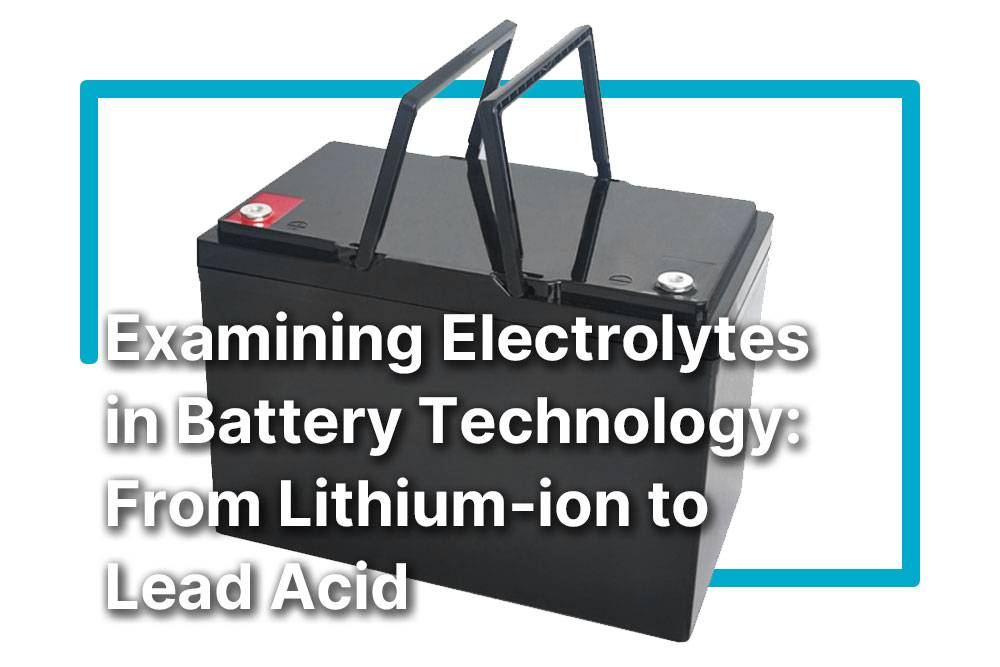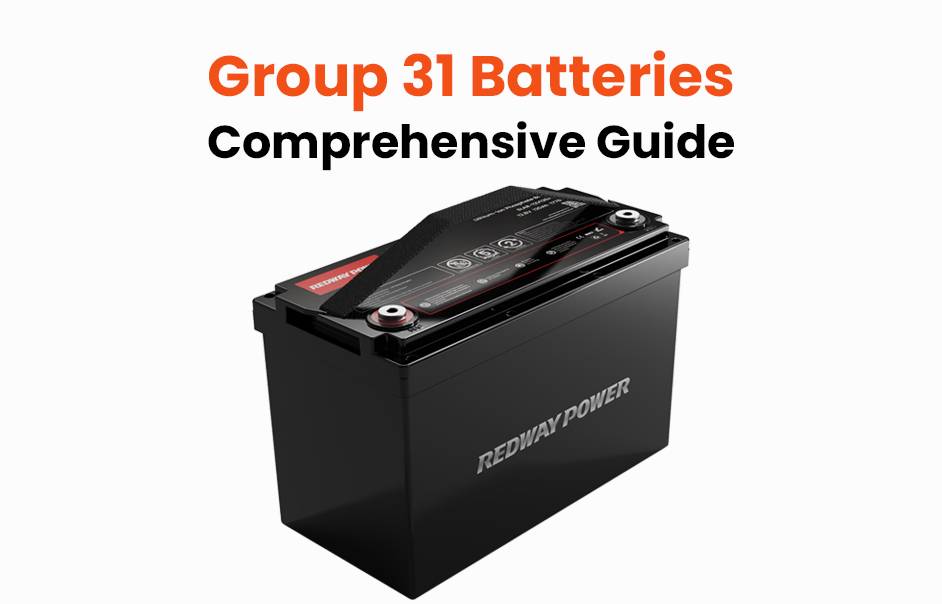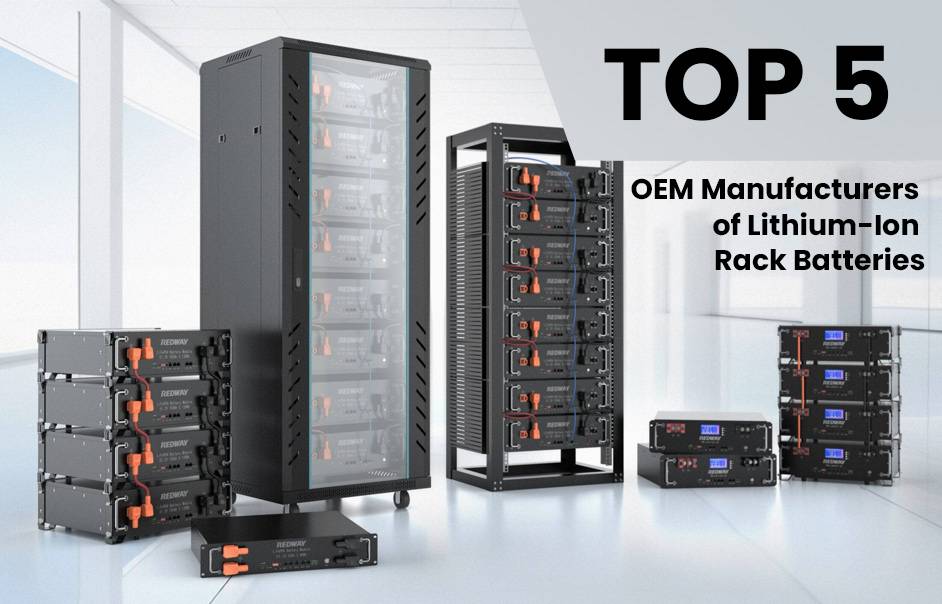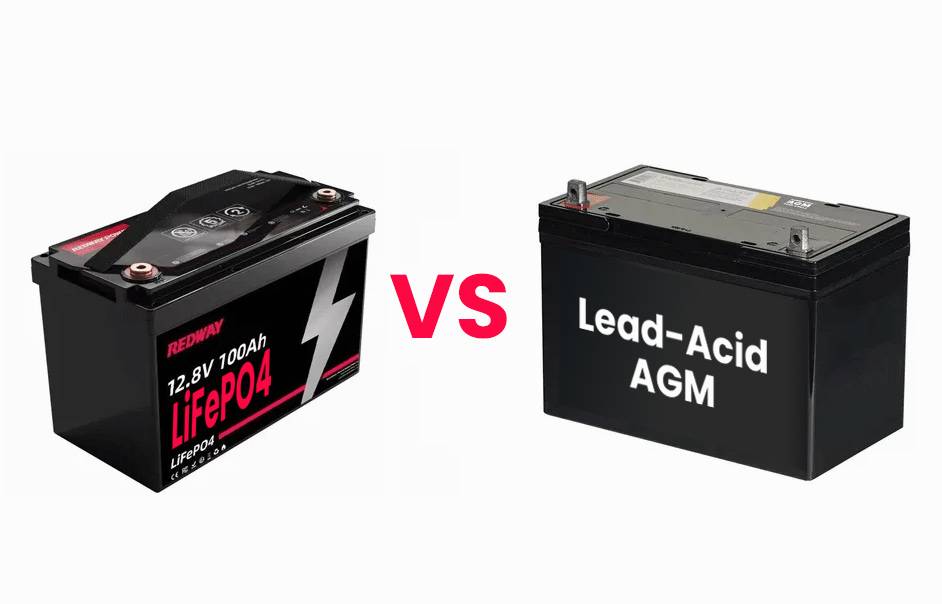
Blog
How Do Lead-Acid and Lithium-Ion Batteries Compare?
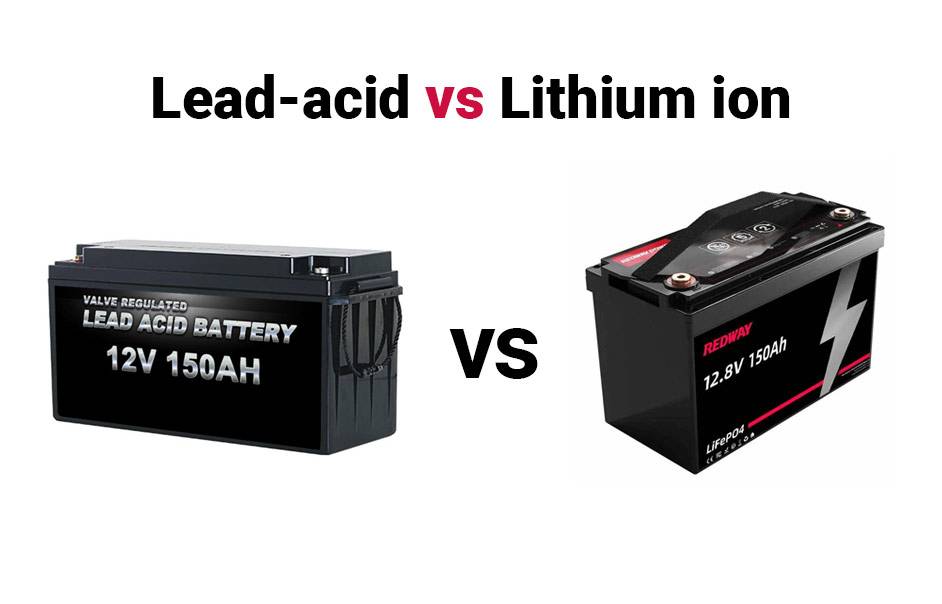
Lead-acid and lithium-ion batteries differ significantly in weight, energy density, lifespan, and maintenance. Lithium-ion batteries are lighter, provide higher energy efficiency, and require minimal upkeep, while lead-acid batteries are heavier, cost less upfront, but need regular maintenance. Redway Power emphasizes selecting the correct battery chemistry based on application, performance needs, and long-term cost.
What Are the Key Differences in Energy Density?
Lithium-ion batteries offer 2–3 times higher energy density than lead-acid, allowing more energy storage in a smaller, lighter package. Lead-acid batteries are bulkier and heavier for the same capacity, impacting portability and installation space. Redway Power designs lithium solutions optimized for industrial and EV applications.
| Battery Type | Energy Density (Wh/kg) | Weight (kg for 100Ah) |
|---|---|---|
| Lead-Acid | 30–50 | 30–35 |
| Lithium-Ion | 150–200 | 10–15 |
How Do Lifespan and Cycle Life Compare?
Lead-acid batteries typically last 300–500 cycles, whereas lithium-ion batteries often exceed 2,000 cycles. Higher cycle life reduces replacement frequency and total cost of ownership. Redway Power integrates advanced BMS systems in lithium packs to maintain consistent performance across thousands of cycles.
Which Battery Type Requires More Maintenance?
Lead-acid batteries require periodic water refilling, terminal cleaning, and equalization charging. Lithium-ion batteries are largely maintenance-free, with internal management systems preventing overcharge, deep discharge, and thermal issues. Redway Power’s lithium packs minimize maintenance efforts, making them ideal for industrial and mobility applications.
What Are the Differences in Charging Time and Efficiency?
Lead-acid batteries charge slower (6–12 hours) with 70–85% efficiency, while lithium-ion charges faster (1–4 hours) with over 95% efficiency. Faster charging reduces downtime for EVs, golf carts, and energy storage systems. Redway Power lithium batteries utilize optimized charging protocols to maximize battery health and performance.
| Battery Type | Typical Charging Time | Charging Efficiency |
|---|---|---|
| Lead-Acid | 6–12 hours | 70–85% |
| Lithium-Ion | 1–4 hours | 95%+ |
Are There Safety Considerations Between the Two?
Lead-acid batteries can leak acid and emit hydrogen gas, posing corrosion and explosion risks. Lithium-ion batteries are more stable, with built-in BMS and protective circuitry, though thermal runaway is possible if damaged. Redway Power implements rigorous safety designs, including robust casings, temperature monitoring, and cell balancing.
How Do Costs Compare Between Lead-Acid and Lithium-Ion?
Upfront, lead-acid batteries are cheaper, making them appealing for small-scale or low-budget setups. Lithium-ion has higher initial cost but lower total cost of ownership due to longer lifespan, less maintenance, and higher energy efficiency. Redway Power provides competitive OEM lithium packs optimized for cost and performance.
Which Applications Suit Lead-Acid Batteries?
Lead-acid batteries are suitable for stationary energy storage, low-cost backup power, and infrequently used vehicles where weight is less critical. They are robust for moderate usage scenarios but may not perform well under deep cycling conditions. Redway Power offers OEM lead-acid alternatives for industrial and marine applications.
Which Applications Suit Lithium-Ion Batteries?
Lithium-ion batteries excel in electric vehicles, renewable energy storage, marine vessels, and high-demand industrial equipment due to lightweight, long life, and rapid charging. Redway Power develops lithium packs for diverse applications including forklifts, golf carts, RVs, and home ESS systems.
Redway Power Expert Views
“Choosing between lead-acid and lithium-ion depends on operational needs, budget, and longevity expectations. Lithium-ion’s advantages in energy density, efficiency, and maintenance make it ideal for high-performance applications. Redway Power ensures each lithium battery pack integrates BMS and safety measures to maximize cycle life and operational reliability,” says a Redway Power battery specialist.
Conclusion
Lead-acid and lithium-ion batteries each have unique advantages. Lead-acid remains cost-effective for limited-use and stationary applications, while lithium-ion provides superior performance, lighter weight, and longer life. Redway Power emphasizes matching battery chemistry to application requirements for optimal safety, efficiency, and reliability.
FAQs
1. Can lithium-ion replace lead-acid in all applications?
Yes, but weight, space, and budget must be considered; lithium-ion is more efficient for high-demand or mobile uses.
2. How long do lithium-ion batteries last compared to lead-acid?
Typically, lithium-ion batteries last 2–5 times longer in cycles and calendar life.
3. Are lithium-ion batteries safer than lead-acid?
Generally yes, with built-in BMS and sealed designs, though thermal runaway is a risk if damaged.
4. Does Redway Power produce both battery types?
Yes, Redway Power manufactures high-quality OEM lithium and lead-acid batteries for various applications.
5. How does charging efficiency affect operational cost?
Higher efficiency reduces energy loss and electricity cost over the battery’s lifespan, favoring lithium-ion packs.




